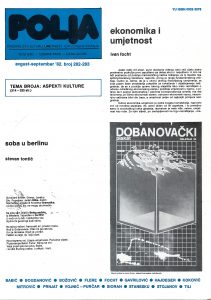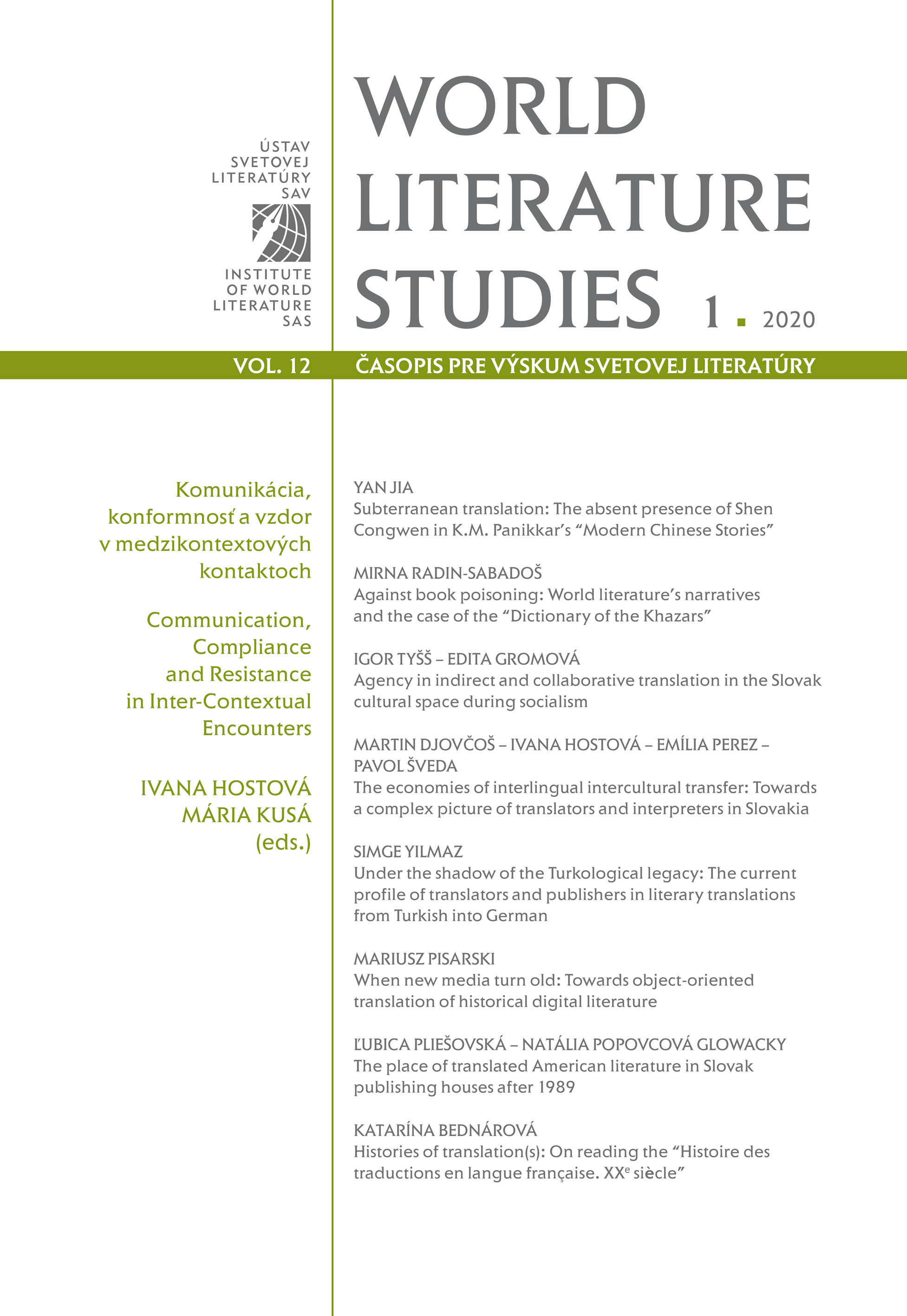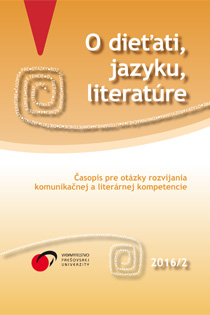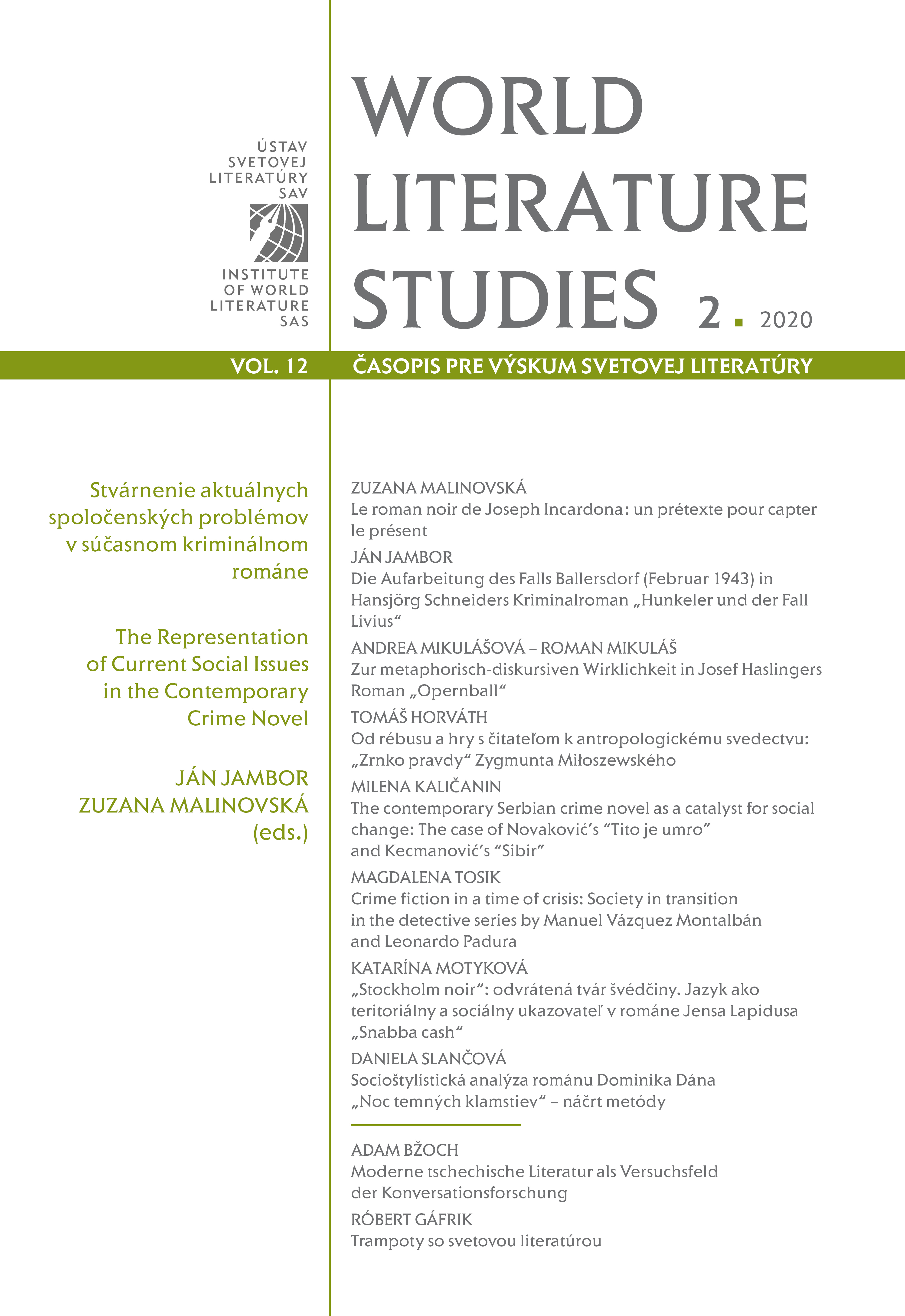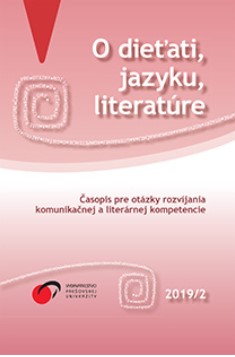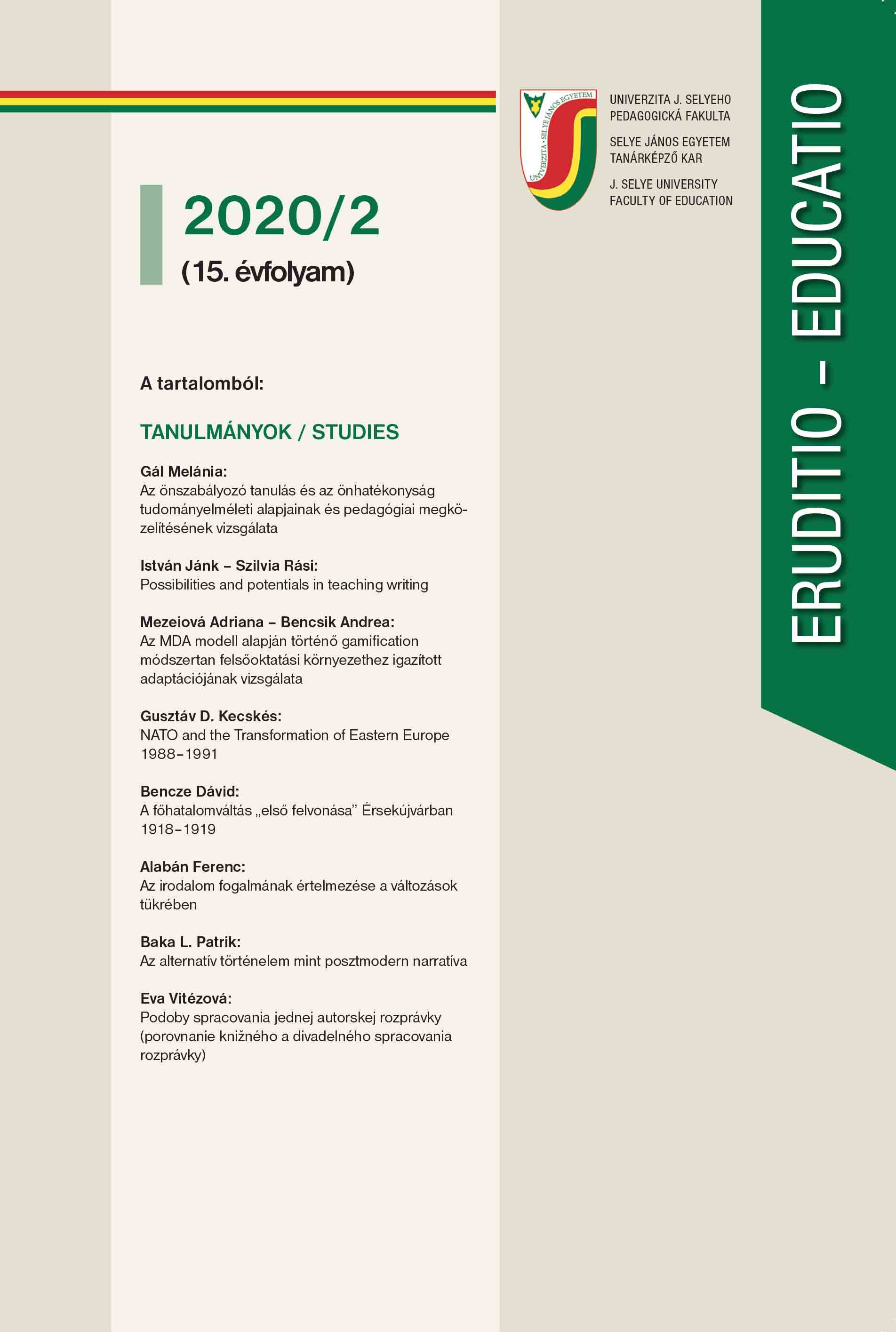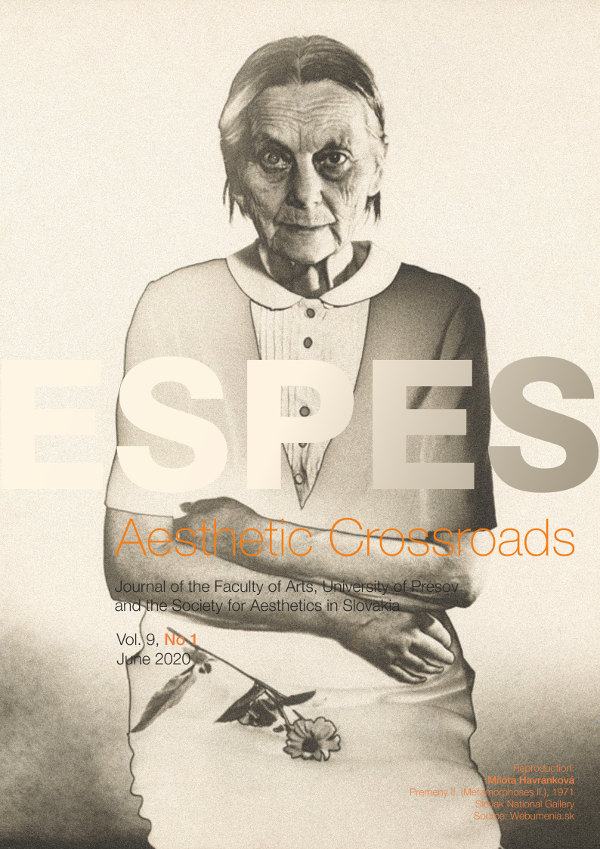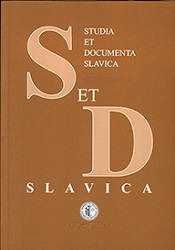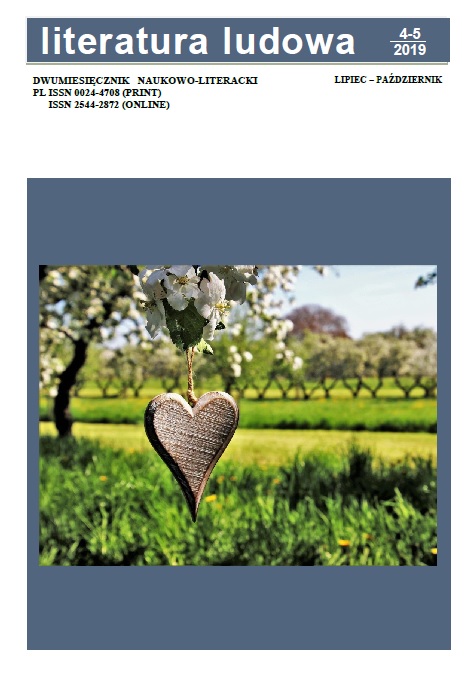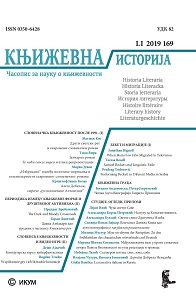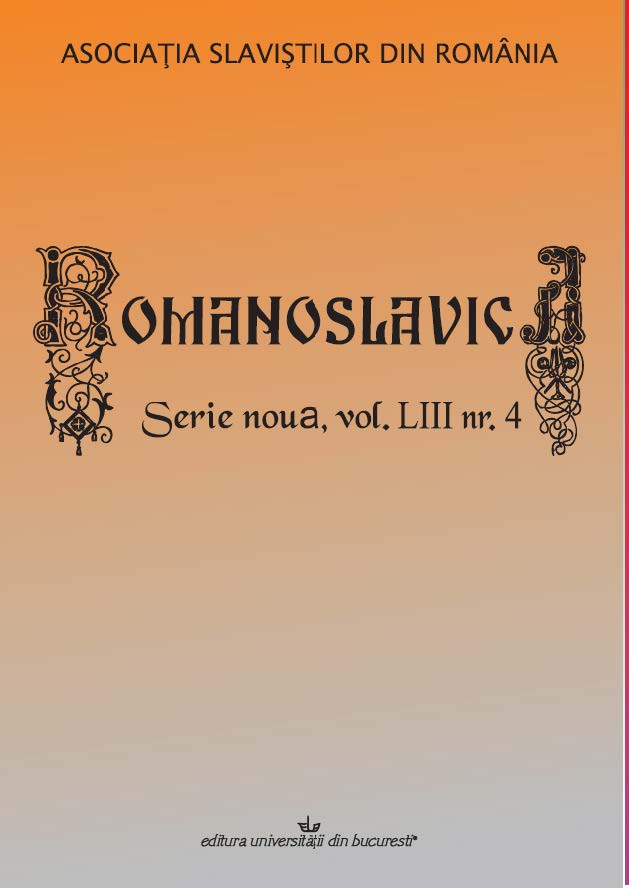Hronského tvorba perom maďarskej literárnej kritiky
The paper studies the last novel of J. C. Hronský Svet na Trasovisku in the context of the Slovak literature and also in the context of the previous authors’ works to find out how the text of the novel differentiated from reality. Research of the text and other resources show that Hronský’s picture of the war events and the Slovak National Uprising was based on his personal life experience, his humiliation and his proffesional degradation. That is why his picture differentiates from those ones made by the authors who participated in preparation of the SNU and who were active participants of it. Hronský was a loyal citizen of the Slovak State but he was never active in politics. All his efforts as an author and in the Matica Slovenská aimed to flourishing the Slovak literature and culture and thus to enable them to participate in inter-literal European communication. The novel Svet na Trasovisku and previous Hronský’s works are based on symbolic principles. He surrounded events of the period, relationships and characters by symbols and thus he created the story of many meanings. The main idea of the novel is national idea connected with a christian one in the last picture of the novel which is a way from darkness of the war period to the light of hope and trust in Slovak nation also after the war period. He expressed the war period indirectly through reactions and actions of the characters. Their dual polarization was the result of their relationship to the state and of their confessional difference and nationality. The author wanted to emphasize moral values of the characters and his own struggle for national and ecumenical unification of the Slovaks.
More...

